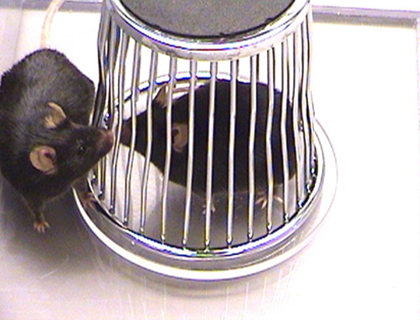Core Director: Ben D. Philpot, Ph.D.

The Preclinical Core provides IDDRC investigators with multiple approaches for research in animal models,
with an overall goal of linking abnormal behavioral phenotypes to changes in brain structure, regional
connectivity, cellular function and molecular processes. The Core has three components: the Mouse
Behavioral Phenotyping Laboratory, the Neuroscience Microscopy Facility, and the Small Animal Imaging
Service. By spanning multiple aspects of mouse model evaluation and use, these components provide a basis
for integrative, translational neuroscience within the UNC IDDRC.
The Mouse Behavioral Phenotyping Laboratory provides testing services, training, and access to an extensive
set of automated measurement systems and other equipment for behavioral evaluation. Procedures have been
selected to provide an optimal screen for detecting differences across a wide range of functioning –
motoric, sensory, emotional, cognitive, and social. The Laboratory typically uses a global assessment
approach to determine phenotypic profiles of both behavioral deficits and sparing, which can then be
compared to clinical profiles of human disorders. In particular, the Laboratory has standardized specific
batteries for the identification of social deficits, repetitive behavior, and other abnormal phenotypes
related to developmental disabilities, and for the utilization of behavioral mouse models as preclinical
screens for drug discovery initiatives. Laboratory personnel also have extensive expertise in methodology
for preclinical drug studies, including initial tests for appropriate dosing and side effects and the use
of implanted minipumps or pellets for chronic drug regimens.

The Neuroscience Microscopy Facility supports studies on cellular and molecular mechanisms in
neurodevelopment, utilizing labeled neural tissue, brain slices, and intact or living embryonic or adult
brains. The Microscopy Facility provides a full spectrum of advanced systems for cellular and molecular
imaging of in vitro and in vivo samples. In addition to providing access to high resolution imaging
technologies, the Microscopy Facility also implements new imaging technologies, particularly related to
real time and tissue clearing based imaging of neurodevelopment and neural functions, and provides
training, consultation, data analysis, image processing, and centralized technical expertise to support
the imaging needs of neuroscientists and IDD researchers.
The Small Animal Imaging Service, led by Dr. Yen-Yu Ian Shih, provides advanced methods for MRI and other
brain imaging procedures in rodent models, as unique translational approaches to bridge animal and human
imaging studies. The techniques offered in the facility include MRI/DTI, resting state fMRI, and proton MR
spectroscopy. More recently, Dr. Shih has used the integration of optogenetic approaches and fMRI in mice
for brain-wide screening of circuit dynamic changes in response to genetically defined cellular activation.

For more information on this service, please contact Dr. Shih, Director of the UNC Center for Animal MRI.
Yen-Yu Ian Shih, Ph.D.
Phone: (919) 843-4729
Email: shihy@unc.edu
Copyright 2020 The Carolina Institute for Developmental Disabilities
